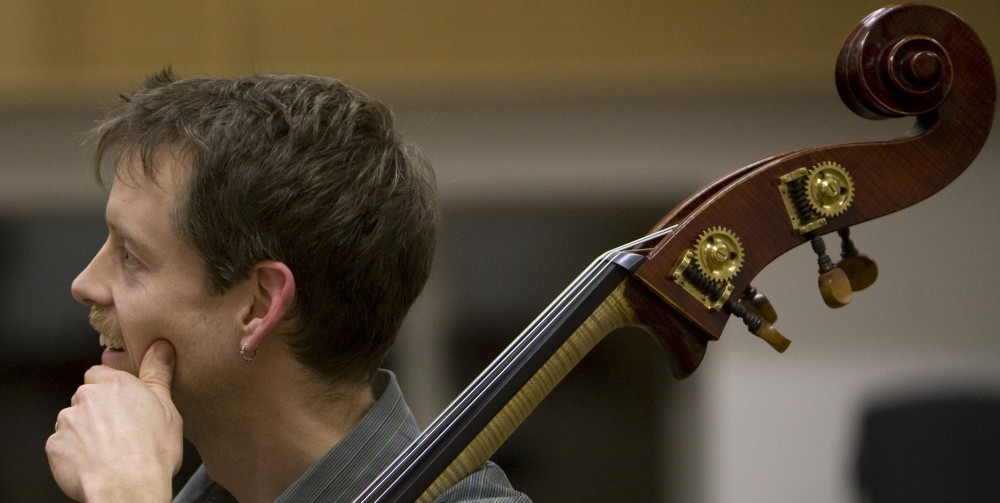In contemporary music you are often either playing buckets of tiny notes in irregular groupings or else endless long held notes. A feast or a famine. Modern composers frequently skip the chapter on orchestration – actually they often skip the whole manual – which makes for great fun meeting the challenges. And if you return to the early eighteenth century you also find that the upper and lower parts have roughly equal complexity, Baroque counterpoint featuring the continuo just as much as the melody. This is great repertoire for the bass-clef-ist. But the most popular music tends to observe a kind of inverted pyramid structure, where the lower parts have the fewest notes and the upper ones the most. This is true of most Romantic music as well as pop, rock and jazz. The bassist here is primarily providing an architectural foundation while the violin/synthesiser/guitar/saxophone does all the cornicing and filagree and stained glass.
I was playing the Schubert Octet a few years ago – a work of the inverted pyramid genus – and the first violinist made a lovely observation: he said that it must be great to be a bassist and to be able to care for every note. This is truly a thing for the double-bassist to cherish. We have a role that is all about support and doesn’t attract much popular attention, but the possibility of examining and developing a single tone is a real blessing. Less is more, and while those stratosphere-dwellers are dealing in contours, we often have the time to love a note. Any bassist who doesn’t dig a pedal point is in the wrong job.

Schopenhauer saw music as a model of his ‘World as Will and Idea’ theory. For him the bass with its constrained functioning corresponds to the physical world, the harmony parts to the animal world, and the (relatively freer) melody parts to human activity.
Wagner was bowled over by reading Schopenhauer. He changed his attitude from hot-headed revolutionary to dispassionate observer, in line with Schopenhauer’s pessimism; he even wrote to him saying ‘How can I thank you enough?’
Of course the music Schopenhauer had in mind was not Wagner; his ideal composer was Rossini.